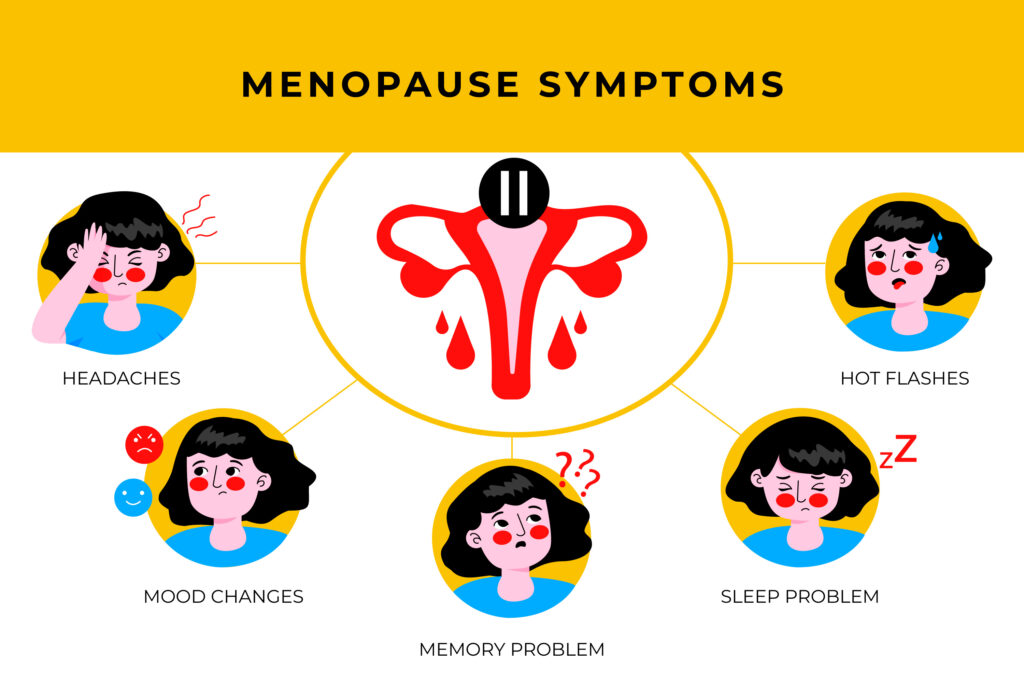Treatments Female Disorders Menopause

Navigating the Challenges of Menopause Syndrome: A Journey of Change and Empowerment
Menopause syndrome encompasses a wide range of symptoms that typically occur during perimenopause and may extend into post menopause. It occurs due to hormonal fluctuations and the gradual decline of estrogen and progesterone levels in a woman's body. While menopause usually occurs around the age of 50, the perimenopausal phase, which precedes menopause, can begin several years earlier.
Menopause, a natural biological process marking the end of a woman’s reproductive years, brings about significant changes in her physical, emotional, and psychological well-being. Menopause syndrome, also known as climacteric syndrome or perimenopausal syndrome, refers to the constellation of symptoms experienced during this transitional phase. While menopause affects each woman differently, it is essential to understand the symptoms associated with menopause syndrome and explore strategies for managing them effectively. This article aims to shed light on the topic, providing insight, empathy, and support for women experiencing this transformative journey.
Understanding Menopause Syndrome
Menopause syndrome encompasses a wide range of symptoms that typically occur during perimenopause and may extend into post menopause. It occurs due to hormonal fluctuations and the gradual decline of estrogen and progesterone levels in a woman’s body. While menopause usually occurs around the age of 50, the perimenopausal phase, which precedes menopause, can begin several years earlier.
Symptoms of menopause syndrome vary from woman to woman but commonly include:
Managing Menopause Syndrome
While menopause syndrome can be challenging, numerous strategies can help women navigate this transformative phase with grace and confidence:
Role of Homeopathy
As mentioned above Menopause is not a disorder or disease it is just a transition phase which has its symptoms, Homeopathy based on Holistic and individualistic approach helps in completing this transition in a gentle way without any side effects. If you or your known are facing issues related to Menopause, feel free to Contact Dr. Singh’s Homeopathy.
Conclusion
Menopause syndrome represents a significant life transition for women, characterized by a diverse range of symptoms that can impact their physical, emotional, and psychological well-being. It is important to approach this phase with understanding, empathy, and a proactive mindset. By adopting healthy lifestyle practices, exploring treatment options, seeking support, and prioritizing self-care, women can embrace menopause as an empowering journey of change and growth. Remember, menopause is a natural process that signifies the beginning of a new chapter in a woman’s life, ripe with opportunities for personal fulfillment and self-discovery.

